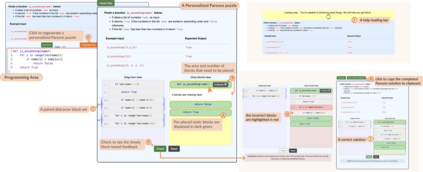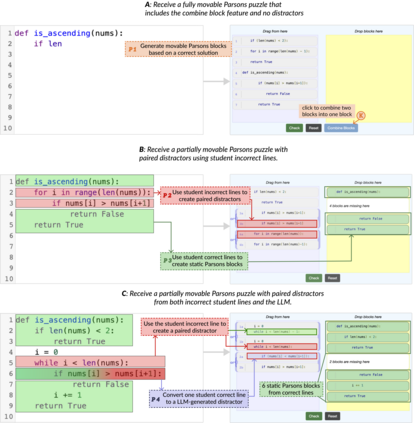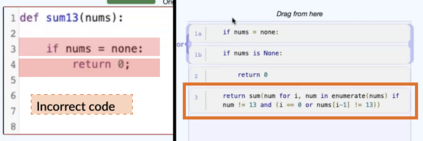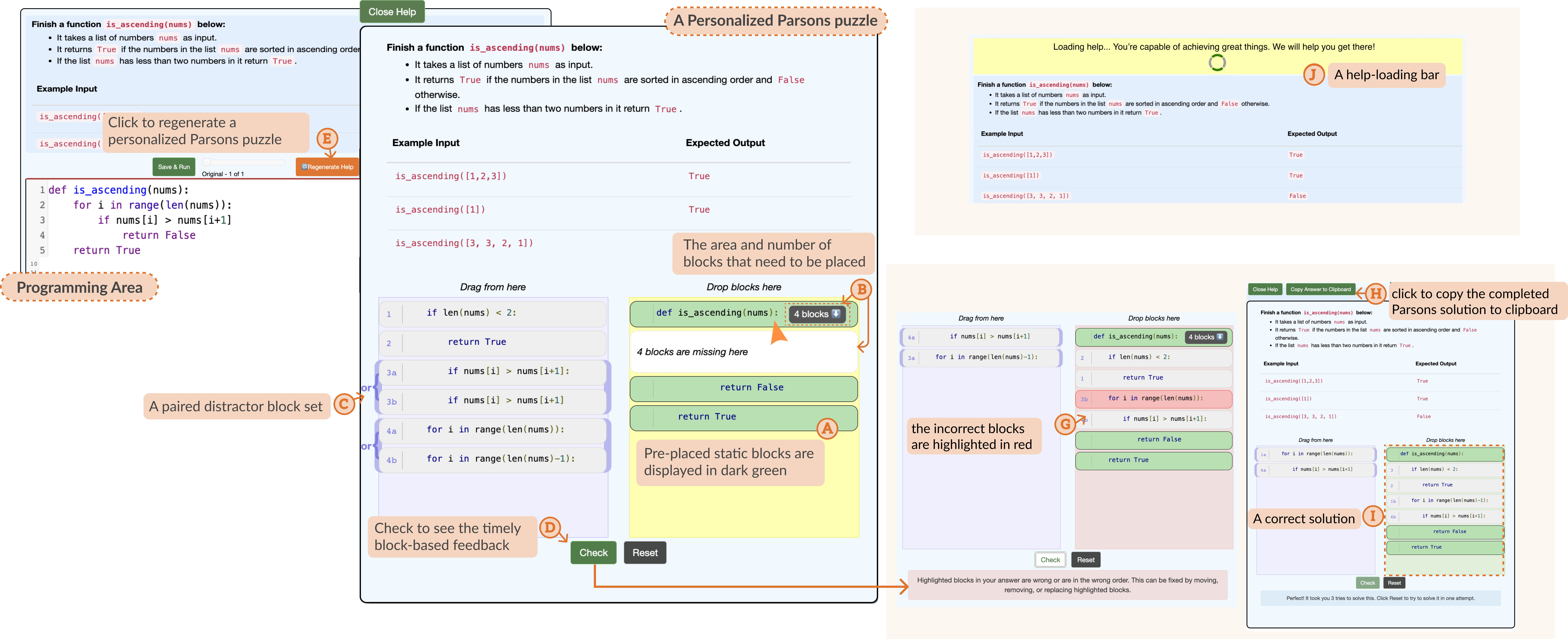Programming can be challenging for novices, but it is difficult to provide high-quality, comprehensive, and timely support at scale. Generative AI and its products, like ChatGPT, can create a solution for most introductory programming problems. However, students may become overly reliant on these tools for quick code generation and homework completion, leading to reduced engagement and limited learning. In this work, we present \sys{}, a system that utilizes large language models (LLM) while still promoting students' cognitive engagement. \sys{} provides a personalized Parsons puzzle to support struggling students. In a Parsons puzzle, students place mixed-up code blocks in the correct order to solve a problem. A technical evaluation with 800 incorrect student code demonstrated that \sys{} can efficiently create high-quality (correct, personalized, and concise) Parsons puzzles for students. In a within-subjects experiment with 18 novice programmers, most students rated using \sys{} as more engaging, and they preferred \sys{} for learning rather than simply receiving an AI-generated solution. Additionally, students recalled more new elements from the supported practice to the posttest after using \sys{}, compared to when they simply received a direct solution. Qualitative observations and interviews provided evidence for the benefits of \sys{} including emphasizing algorithmic thinking, fostering continuity in learning, promoting metacognitive reflection, and boosting student confidence. We conclude by suggesting future designs for applying generative AI in a way that minimizes over-reliance and enhances learning.
翻译:暂无翻译










